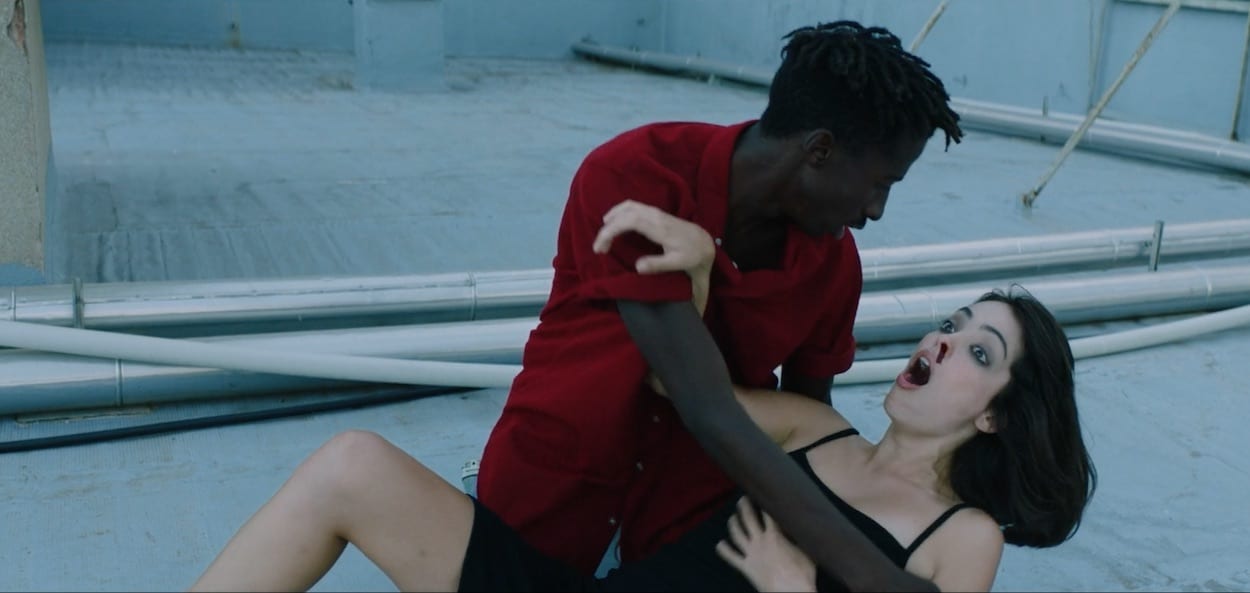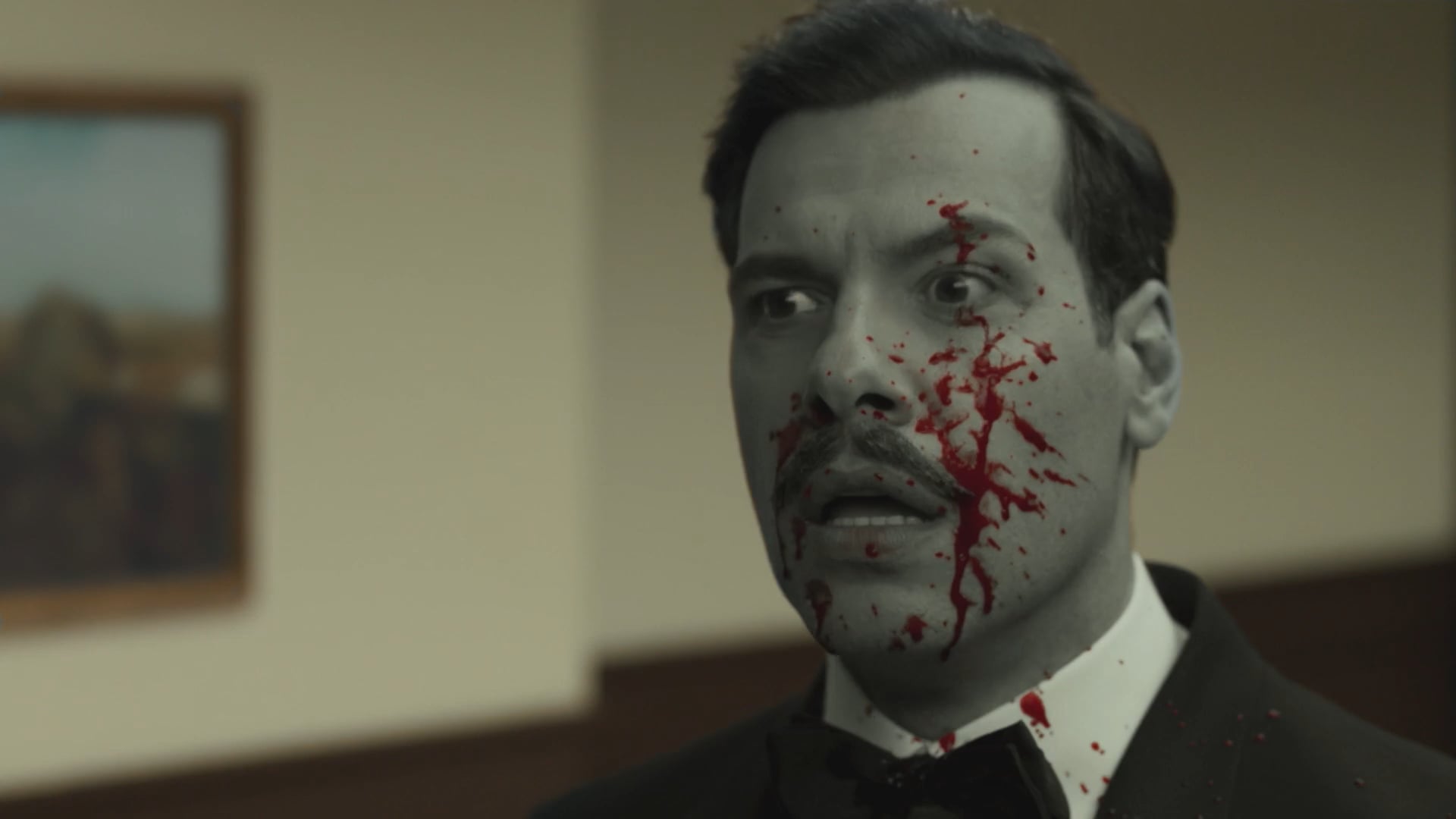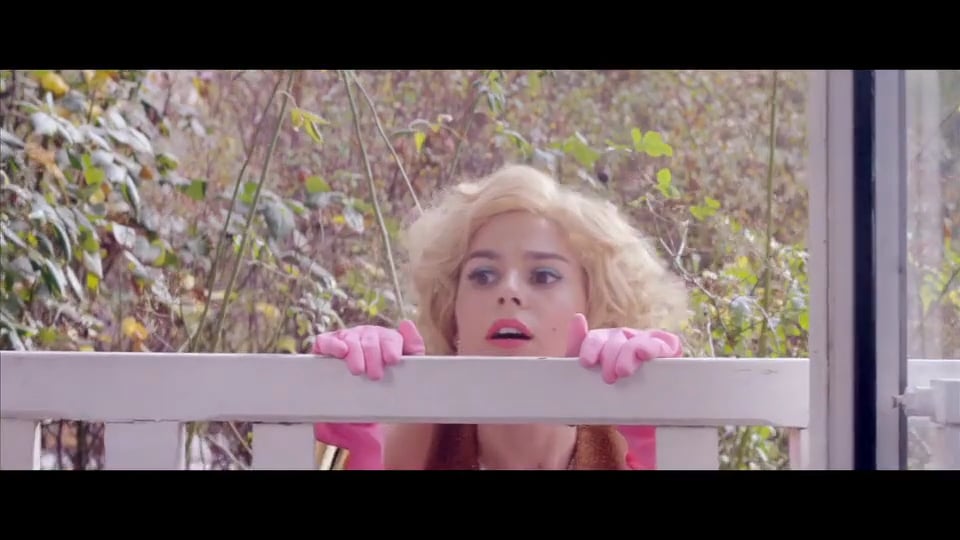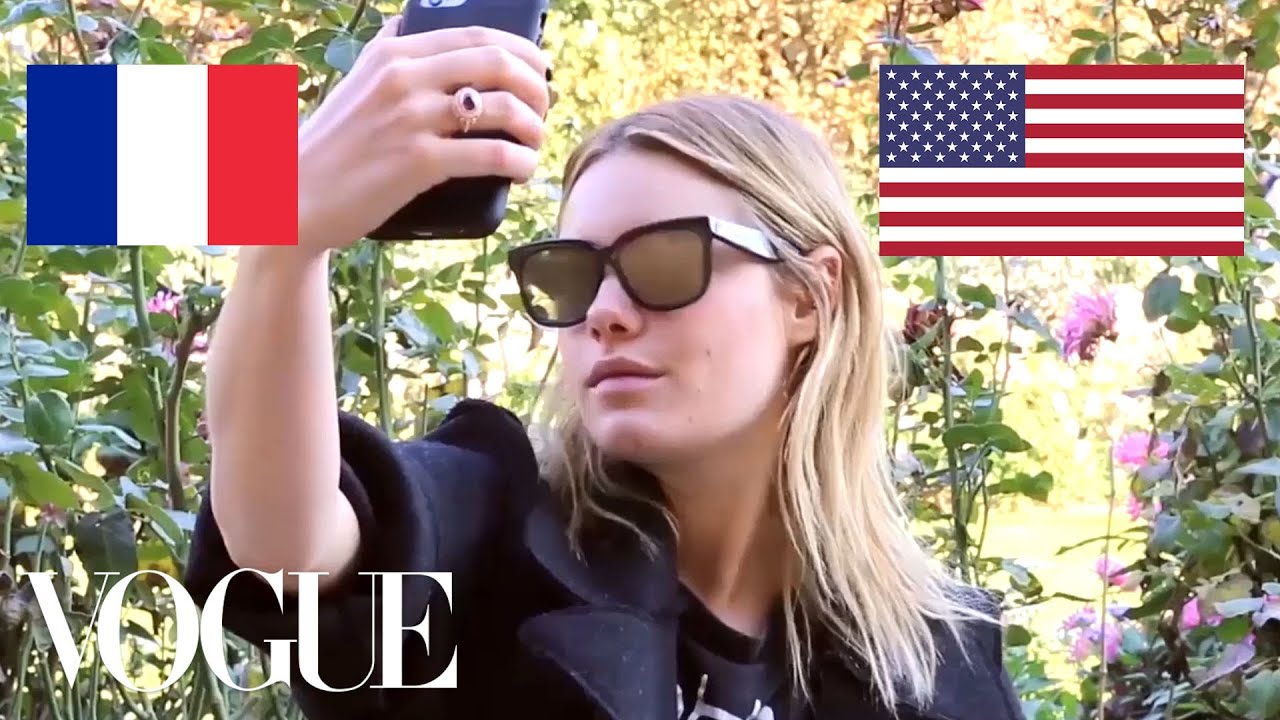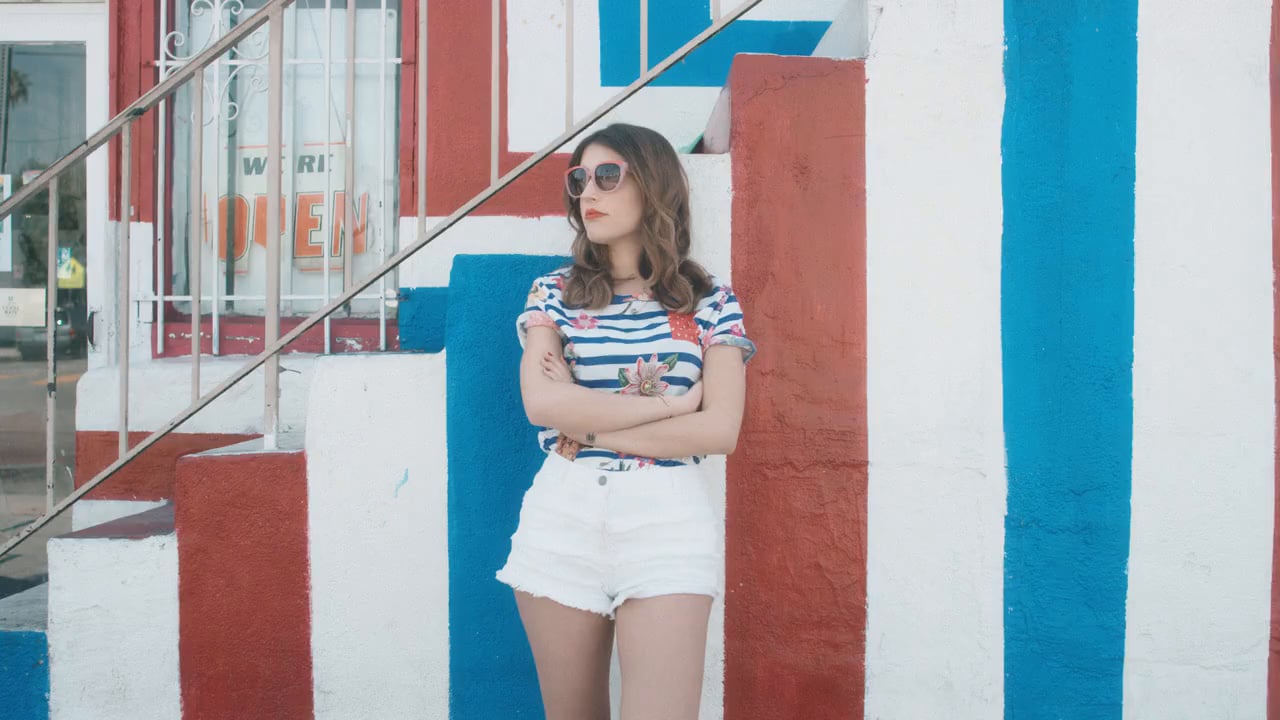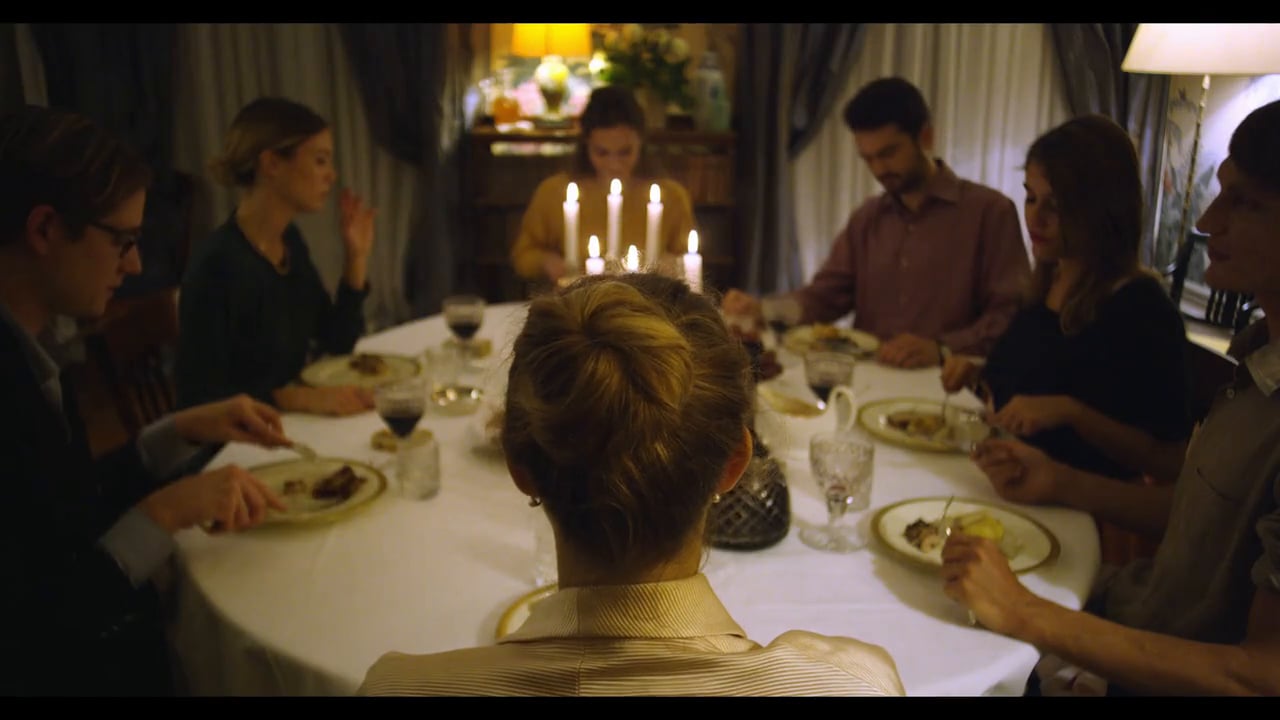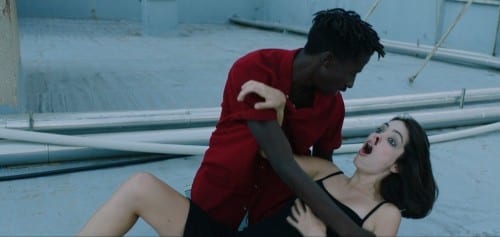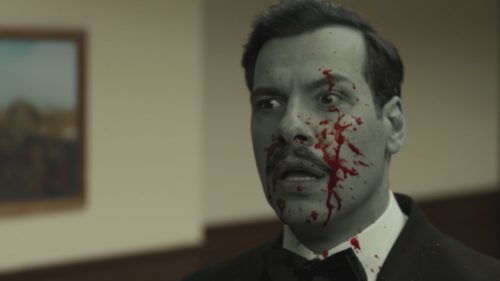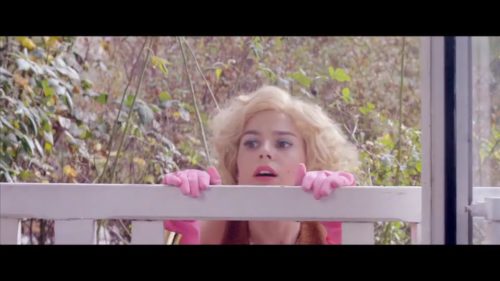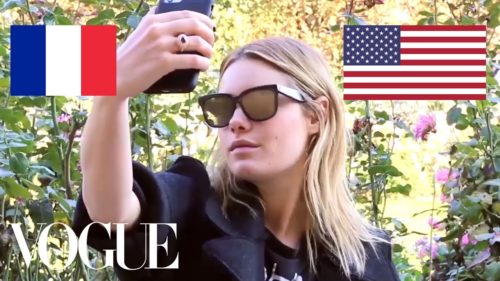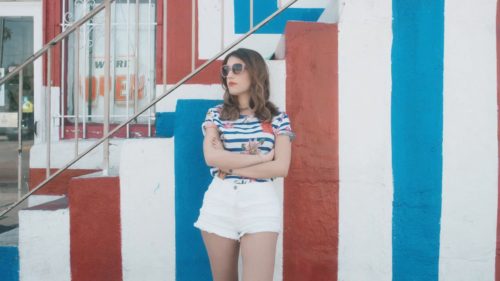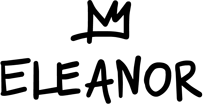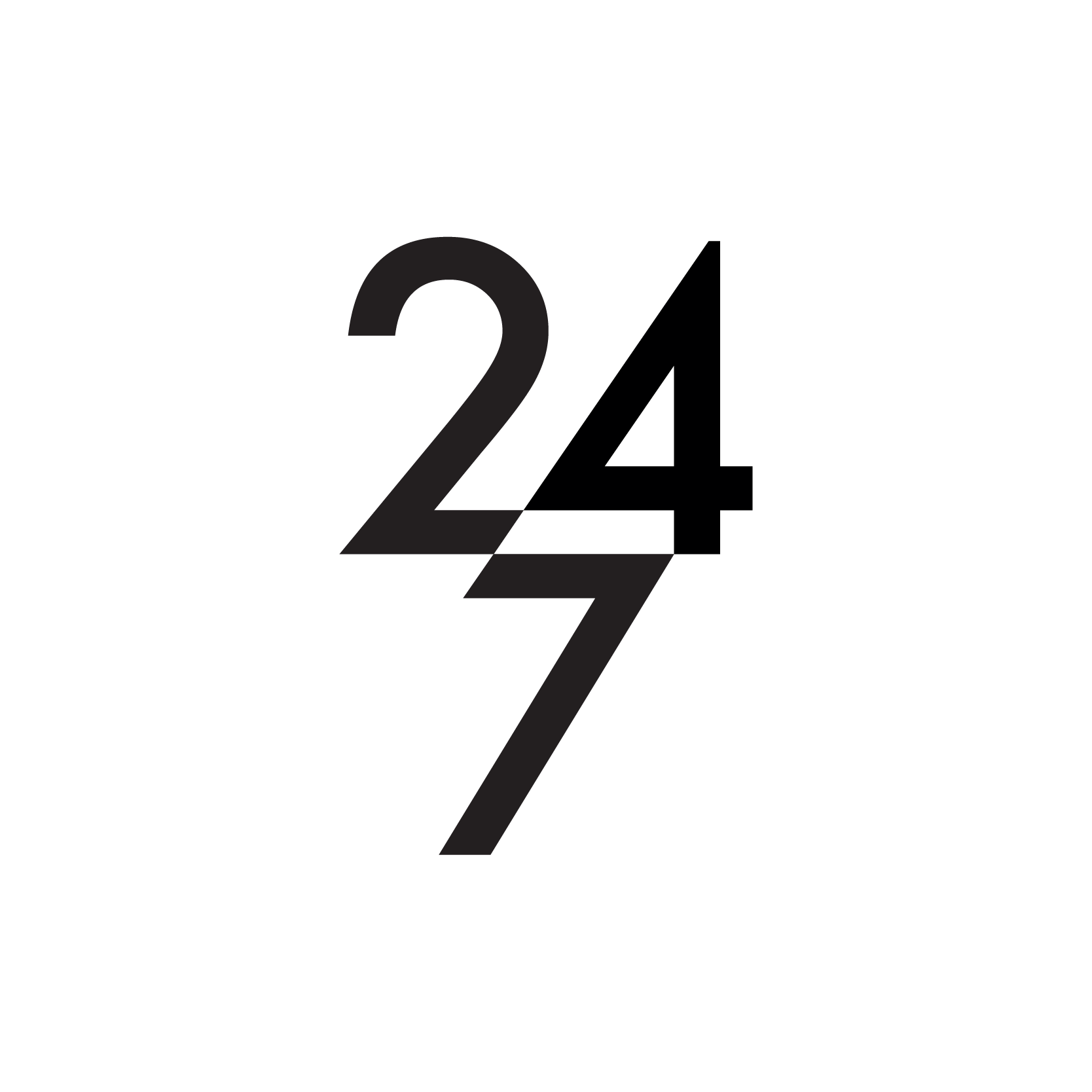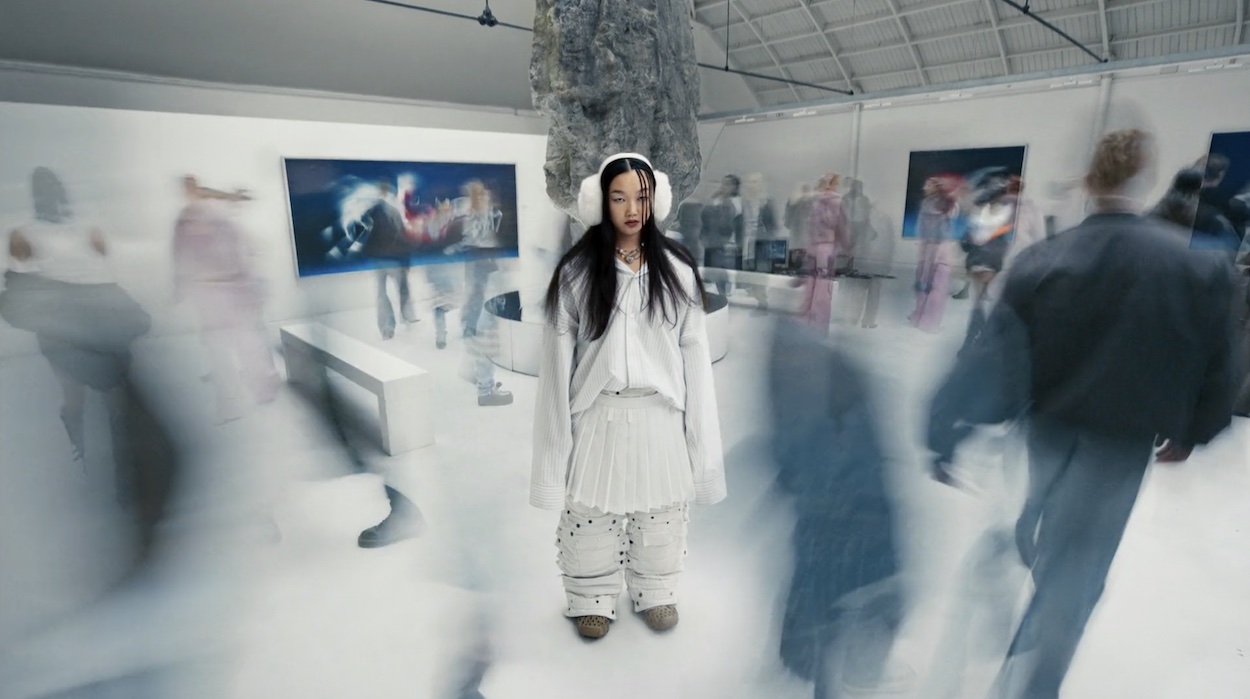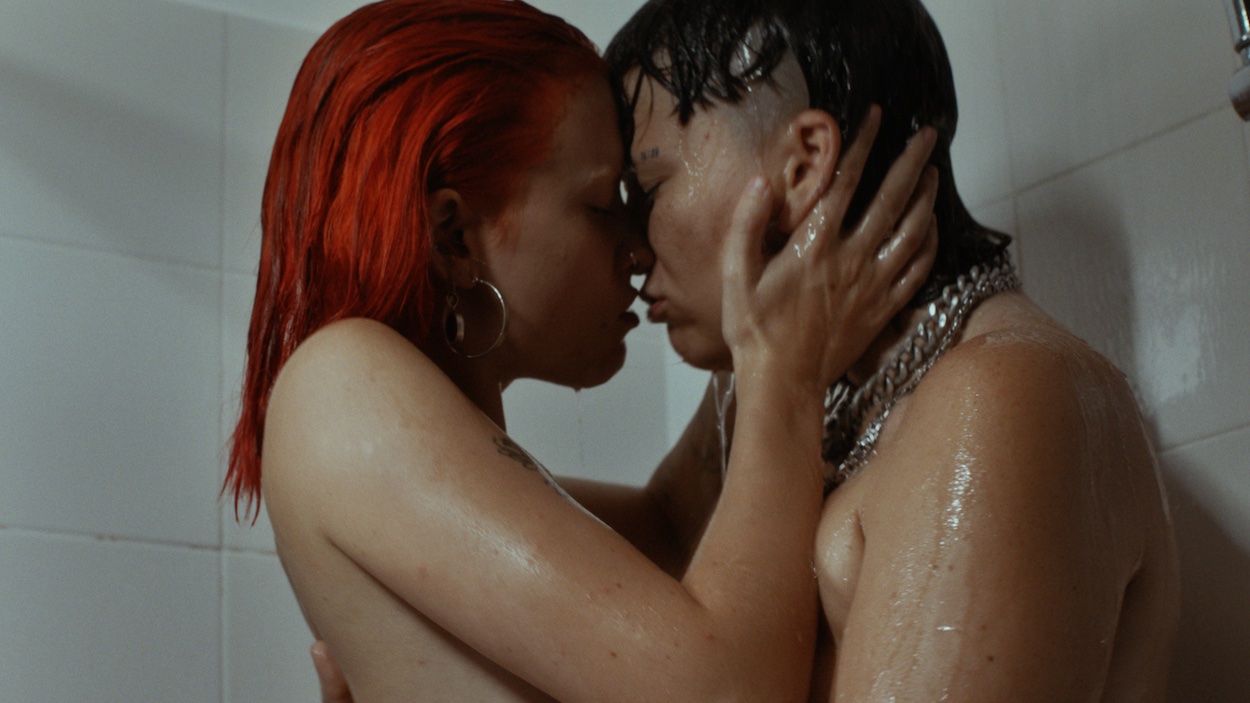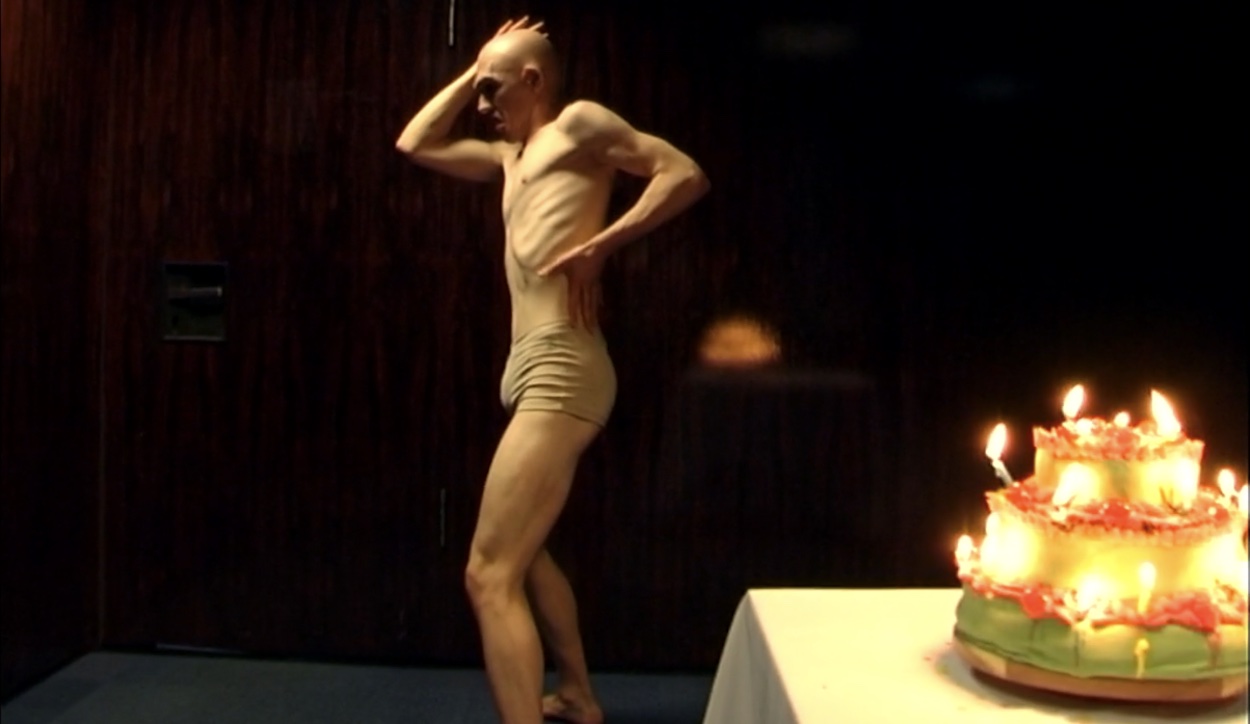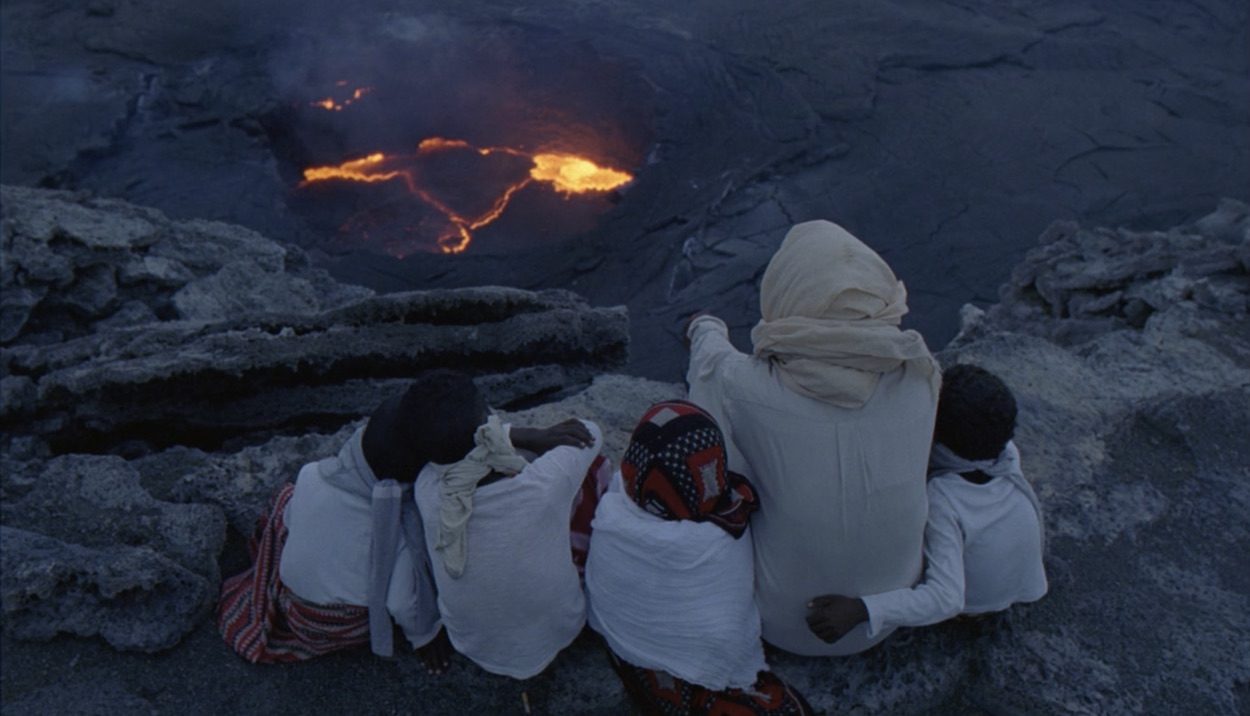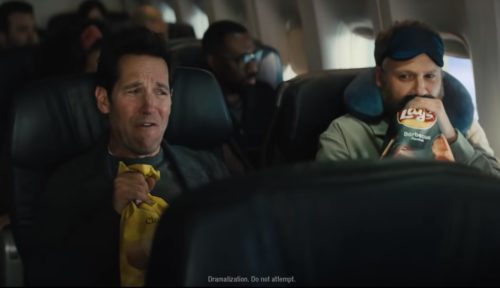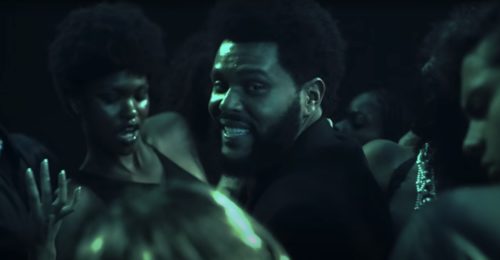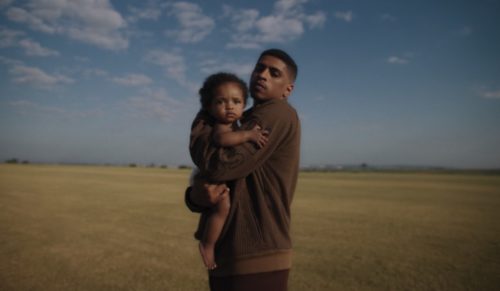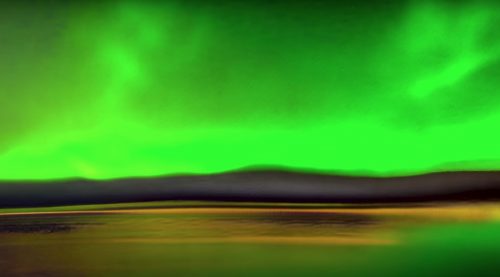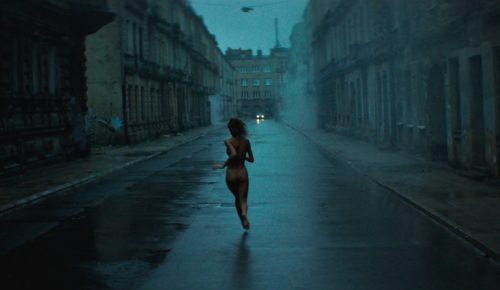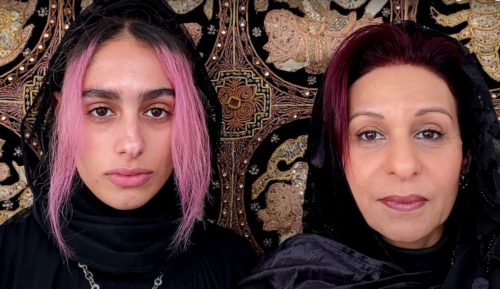Do you write most of your scripts and if so what is your creative process for coming up with your narratives (for instance are you writing ideas down all the time, or do you sit down in a particular place and brainstorm)?
I do write all my scripts, both in English and French. Even for my commercials, I always take part in the writing – it’s my favorite part, and I don’t really see myself directing something written by someone else.
I’m thinking about ideas and writing them down all the time, especially for music videos. I have a list of concepts somewhere in my phone. When I get offered a specific project, I’m quite militant; I sit down in my living room and think. Watch hundreds of references (films, videos, photography…) and think. And of course, if it fits, I develop one of the ideas I’ve put on a shelf!
Do you sketch out treatments and storyboards – do you think about the framing as you go or are you more verbal and think in words?
First comes the general idea, the concept. Then comes the location, which sets the mood. It’s only after that words, situations and dialogues come. My frames naturally follow. Sometimes, I have exact frames in mind, like paintings.
I write all my treatments and join the artistic director (who does layout) for image research. I need to document myself and get my ideas as precise as possible. Same for the storyboard: I draw it myself (it does look like as if a 9 year old did it though) to have a shot-by-shot as precise as possible; for the crew, of course, but for myself as well. I need this rigorous preparation to be able to make last minute changes or even to improvise. Also to be able to relax on set!
For instance, please tell us how the crazy wonderful script idea came about for Talisco’s Stay (before the picture fades). Were you always confident that the central idea would hold together even though it wasn’t a linear storyline? What was the original brief for Stay and how did you develop it?
There was no other brief than “light and quirky”. Both the label, Roy Music, and the artist, Jérôme Amandi, were very trustworthy and I’m super grateful for that… it’s great and rare to feel supported and artistically believed in rather than crushed by the music industry.
The title gave me the idea of failed goodbyes, of a character capable of anything to make his loved one ‘stay’. I connected it to the romantic farewell clichés in movies as I’ve always found them hilariously cheesy… And I found it super fun to twist the codes of cinema, to see what could happen after ‘The End’.
For me, it was necessary to cover different types of clichés and different kind of goodbyes for the concept to work. I even had to cut several scenes… A linear storyline felt boring: I wanted a choir of craziness, a crescendo of absurdity!
And then Semaine has the oh-so-French dialogue of Mr Poilâne. What came first – the script or the visuals or were they simultaneous?
Concept and text came first. The pitch I got was completely open… it just had to be about this famous French bread brand Poilâne. I thought it would be super fun to turn an animated object – this bread – into the main character, and to make him a nympho, womanizer, narcissistic, Parisian asshole.
Once I found the concept, the script came fluidly, it was just giving a voice to this absurd character…
Then I thought of this beautiful place called Pavillon Puebla which is located in the Buttes Chaumont in Paris. I immediately imagined a scene (the final one) there. Once we got the place, I manipulated the script for the other scenes to all fit there.
Your work can’t be pigeon-holed – you’re very good at getting inside the stream of consciousness of the good-looking tribe – and then you create a visually clever and complicated film such as Les Marches which opened the Cannes Film Festival closing ceremony. How complex was it to make this? What were the main challenges and lessons learnt from this production?
This shoot was very complicated for me. Obviously because of budget and time restrictions – classic – but mostly because making a visually-tricky-film was not in my vocabulary. I really wanted to try directing a transition, technically ‘geek’ film. So, I discovered a lot of new technical stuff on that shoot, whilst directing a celebrity (the actor is a famous French actor)… with a big personality.
I learnt a lot though. Mostly that shooting post-production based films in a green screen studio was not my thing. I feel very, very frustrated by the limits of this kind of set.
Your work seems to be a mix of Californian and Parisian locations. Do you live and work out of both places? Where do you call home?
Home is Paris. Eventually, I’d love to live between here and L.A! Well, that’s my plan. I go to L.A whenever I can. It inspires me constantly – the locations, the people, the look, the light, everything… Balancing between Paris and L.A is the best inspiration possible as they are complete opposites.
Do you collaborate with a core familiar team – especially DP and art direction?
I believe film making is a family process. I want to keep on making films with the same people, grow together, create a common language. Crew AND actors.
I’ve worked recently on two projects (Talisco’s music video and a bank commercial) with Spanish DoP Marc Miro and it’s been an amazing match, both humanly and creatively. In L.A I always work with my good friend and great DP Cristina Dunlap. I’m still looking for my true love in France…
Please tell us about your background that led you to directing? And then how did your knowledge of film-making evolve?
I’ve always been a huge fan of cinema and drama. I always had an old DV camera in my hands as a kid, and loved telling stories. I guess it came naturally. All I knew was that my favorite thing in the world was to be on set (which is quite random as none of my family are in the arts).
After studying literature & cinema at La Sorbonne, I became an assistant director briefly. Then I moved to L.A where I got the chance to work with genius self-made director Dimitri Basil and his crew. After having been familiar to a very academic French method, I discovered a guerrilla style process which taught me so much, from pitching to shooting to art direction to editing. Everything became possible. But I was frustrated: I wanted to do my own films. So one day, with the help of a few great friends, I shot my first ‘experimental’ video in Joshua Tree. It worked pretty well. I went back to Paris and things followed; I got represented by Caviar and Black Dog and quickly directed my first short, These People.
My knowledge keeps evolving every day, and it probably will forever. It’s endless, and that’s what I love about being a director. I started with a very academic, theoretical knowledge – of which I’m super grateful though as it gave me a film culture and curiosity. But I believe you learn the best when you’re on set, when you get your hands dirty.
Making films is the only way to make the next one better, to learn from your mistakes, to get to know yourself and your craft more and more, better and better. For me, it’s like being a painter… Reading books isn’t enough, you need to paint everyday.
You’ve recently developed a couple of short films which are currently on the festival circuit – is longer format something you’d like to explore?
Definitely! It’s my main focus. I have two shorts waiting for subvention (one in English and one in French) and I’m currently writing my first feature film. It’s a dark, offbeat comedy… which I’m really, really excited about it!!
Is there anything else you’d like to share?
Thank you for your kind compliments and great questions! I’m glad my work can’t be pigeon-holed, although the common point in all my work is comedy… An offbeat, (hopefully) smart comedy.
EndFragment
LINKS
Represented by:
Caviar (France):
celine.Roubaud@caviarcontent.com
Black Dog Films (UK):
katie@rsafilms.co.uk
